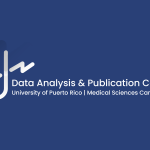Important information about HIV and COVID-19
June 29, 2020

Although the risk for people with HIV of becoming seriously ill with COVID-19 is unknown, these people may have concerns and questions related to their level of risk.
We are facing a rapidly evolving emerging situation and CDC will provide updated information as it becomes available.
Are people with HIV at greater risk from COVID_19 than other people?
At the moment, we do not have specific information about the risk of COVID-19 in people with HIV.
Older adults and people of any age who have a serious underlying condition may have an increased risk of becoming seriously ill, including those with a depressed immune system. The risk of people with HIV becoming seriously ill is higher in:
- people with a low CD4 cell count, and
- people who are not under treatment for HIV (antiretroviral therapy or ART).
People with HIV may also have an increased risk of becoming seriously ill from COVID-19 based on their age and other conditions.
What can people with HIV do to protect themselves from COVID-19?
At the moment, there is no vaccine to prevent COVID-19. The best way to avoid getting sick is not to expose yourself to the virus.
People with HIV should take daily preventive measures to help prevent the spread of COVID-19.
People with HIV should also continue to maintain a healthy lifestyle. This includes:
- eat properly,
- sleep at least 8 hours, and
- reduce stress as much as possible .
Staying healthy helps your immune system fight the infection in case you get one.
If you have HIV and are taking your HIV medications, it is important that you continue your treatment and follow the recommendations of your healthcare provider. This is the best way to keep your immune system healthy.
What should i do if I think i could have COVID-19?
Call your healthcare provider if you have symptoms that might be compatible with COVID-19. Ask what to do to be evaluated and to avoid potentially exposing others to COVID-19.
Learn more about COVID-19 and what to do if you get sick .
What else can people with HIV protect themselves who are at increased risk of becoming seriously ill from COVID-19?
Almost half of the people in the United States diagnosed with HIV are 50 or older. People with HIV also have higher rates of certain underlying conditions. Both older age and these conditions can increase the risk of becoming more seriously ill if a person with HIV contracts COVID-19, particularly those with advanced HIV.
Measures that people with HIV can take to prepare themselves, in addition to following the recommendations issued for all:
- Make sure you have a 30-day supply of your HIV medications and any other medications or medical supplies you need in your HIV treatment.
- Talk to your healthcare provider and make sure you have all of your vaccinations up-to-date, including seasonal influenza and bacterial pneumonia vaccines , as these vaccine-preventable diseases disproportionately affect people with HIV.
- Establish a clinical care plan if you must stay home for a few weeks. Try to establish a telemedicine link through the online portal of your HIV care provider. If you do not have the telemedicine option available, make sure you can contact your provider by phone or text message.
- Make sure you can maintain a social network remotely, whether online, by phone, or by video conference. This can help you stay socially connected and mentally healthy, which is very important for people with HIV.
- Sometimes people with HIV may be more likely to need more help than others, whether from friends, family, neighbors, or community health workers, among others. If you do get sick, be sure to keep in touch by phone or email with those who can help you.
Can HIV medications (TARV) be used to treat COVID-19?
Certain types of HIV medications (for example, lopinavir / ritonavir) are being evaluated to treat COVID-19. The results of a clinical trial conducted in China showed that lopinavir-ritonavir did not accelerate recovery or reduce the amount of virus produced in hospitalized patients with COVID-19 and pneumonia. There are more than 15 HIV drug clinical trials registered on ClinicalTrials.gov. Until more information is available about the effects of these medications on COVID-19, people with HIV should not change their HIV medications with the intention of preventing or treating COVID-19.
Is there any kind of shortage of HIV medications (ART) or pre-exposure prophylaxis (PrEP) expected?
No shortage or anticipated problems have been detected with HIV medications.
The U.S. Food and Drug Administration (FDA) is closely monitoring the drug supply chain because the COVID-19 outbreak has the potential to disrupt the supply of medical and pharmaceutical products in the United States.
The National Alliance of State and Territorial Directors for AIDS (NASTAD) has also remained in contact with leading manufacturers of HIV drugs as many of these products rely on ingredients produced in China.
As of March 10, 2020, no manufacturing issues or shortages of supplies had been reported.
Learn more about the FDA response to COVID-19.
Should people with HIV travel at this time?
For CDC travel-related recommendations, visit the CDC page with information about the COVID-19 for travelers .
What can we do to minimize stigma regarding COVID-19?
Minimizing the stigma and misinformation about COVID-19 is very important. People with HIV are experienced in dealing with stigma and can be partners in preventing stigma arising from COVID-19. Learn how you can reduce stigma and help prevent the spread of rumors about COVID-19.

